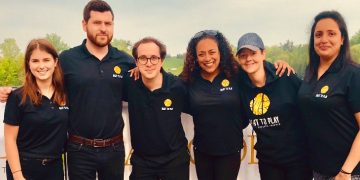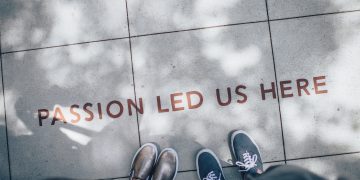How to find happiness…but really
A pathway to finding true happiness
Hannah, a 34-year-old accountant, has proven herself to be highly skilled, dependable and an excellent employee. By all measures, she’s an up-and-coming star within her organization.
Hannah puts a great deal of energy into her work. She takes pride in being able to focus, make personal sacrifices and push herself as much as it takes to complete a task and do it right.
On one ordinary, busy Wednesday afternoon, Hannah was stopped in her tracks by a random thought that came out of nowhere. This thought posed a question she was not prepared for. She tried to ignore it and change her focus back to her work.
“How will I find true happiness?” was the question that wouldn’t go away and became all-consuming. The challenge for Hannah was that she could quickly define what makes her unhappy, but she couldn’t put in words what gives her true happiness.
This micro-skill introduces an approach to deal with this question, should you find yourself feeling stuck like Hannah.
Awareness
One reason why Hannah may have felt stuck is that her thinking was focusing solely on what would have to happen in her life for her to find true happiness.
This question elevated internal feelings and self-awareness that she was doing okay and was supercommitted to excelling at her career. However, she wouldn’t say that she was a superhappy person, nor that she was unhappy. This question became like a rock in her shoe. She was keenly aware that her life was not bad, but something was missing, and she wanted to feel more confident in how she would answer this question.
What Hannah didn’t have was a frame of reference that happiness is never the outcome of arriving at a destination. Happiness is a state of mind, and developing happiness is a process, not an outcome.
What Hannah didn’t have was a frame of reference that happiness is never the outcome of arriving at a destination. Happiness is a state of mind, and developing happiness is a process, not an outcome.
The first action for Hannah to feel confident in her ability to answer this question was accepting that there’s no universal true happiness. Each of us ultimately must define what happiness means to us and to have clarity regarding the relationship between what we do and think as a defining factor that influences our happiness.
Hannah will benefit from becoming aware of what things in her life bring happiness (such as her work, pet, hobbies, volunteer work) and what social and family connections support her happiness. Her question may be nothing more than a random, unconscious thought that can help her discover what may be missing because of what she makes a priority in her life.
Accountability
Happiness and what brings happiness for each of us varies. Sometimes to find true happiness we must weather personal sacrifice. For example, raising children is not always easy but it can eventually result in some of the proudest and happiest moments in our lives as children learn to talk and walk, graduate school, become employed, marry and become parents themselves.
Happiness is not about feeling good every moment. Finding true happiness is getting to the point when we’re content in the moment with what’s happening in our life, have no regrets, no urges or wishes to be someone else, and generally feel good about who we are and what we do.
Action
For Hannah to find true happiness, it begins with releasing the notion that she needs to achieve some material outcome or goal. Happiness begins with being open to what we think and do each day that influences our general outlook on who we are, what we do, what we have and who we want to be in the eyes of ourselves and others.
Coaching tips that support finding happiness:
Become a skilled editor of your thoughts – When your brain provides you with a negative random thought, learn to accept the lesson that negative thoughts are nothing more than thoughts; they aren’t real unless we believe they are. Too many of us are distracted by negative thoughts that can influence our feelings, thinking and behaviour. Happy people learn to become good thought editors. They don’t accept random thoughts, and focus on what they want, the facts and what’s important to them.
Happiness is a way of life, not a destination – We don’t need any more accomplishments to be happy; we need to want to be happy. Wanting to be happy is different from being happy, and it isn’t enough to become happy. Wanting to graduate from high school requires not only wanting to graduate but making a commitment to do the work to graduate. Being happy is the same; it’s not simply deciding to be happy. If you’re not as happy as you’d like to be, then learn how to improve your happiness. With the right information, a mentor and support system, happiness is possible. But it’s not instant, it’s a process, and with each step it can become more tangible and real. Happiness is a trainable skill. In fact, there’s an entire field of psychology called positive psychology that suggests what a person learns to think about themselves will have profound impact on their perceptions of their happiness that have a direct relationship to mental health.
The Globe and Mail and Morneau Shepell have created the Employee Recommended Workplace Award to honour companies that put the health and well-being of their employees first. Read about the 2018 winners of the award at tgam.ca/workplaceaward.
Register now for the 2019 Employee Recommended Workplace Award at www.employeerecommended.com. Get feedback from your staff and get recognized for your excellence in health and wellness. Deadline to register is Nov. 22.
You can find other stories likes these at tgam.ca/workplaceaward.
This article was originally published on the Globe and Mail website and is reprinted here with permission.
Bill Howatt is the chief research and development officer of work force productivity with Morneau Shepell in Toronto.
Want more curated content delivered straight to your inbox?






No Comment